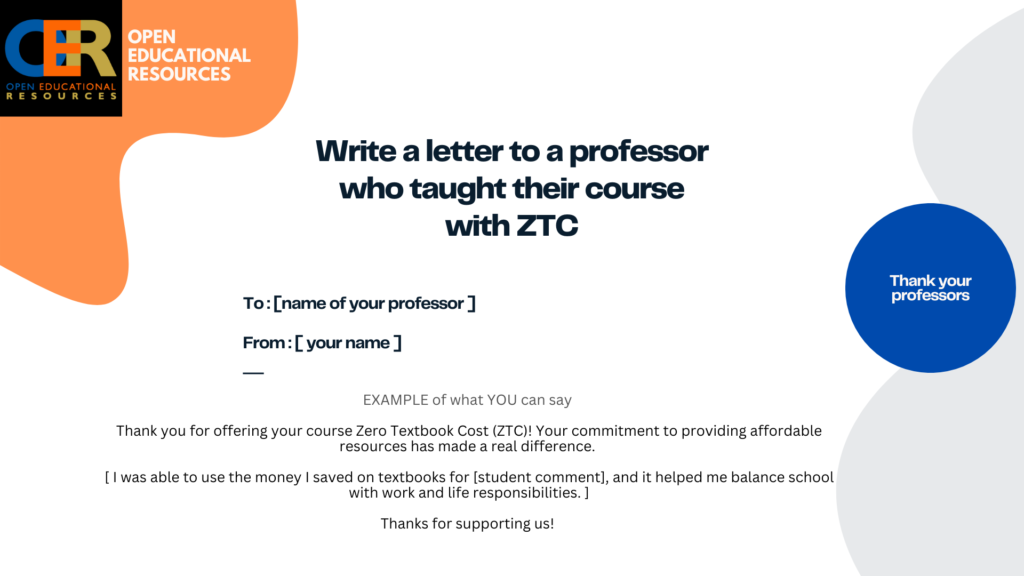Advocate for ZTC
As tuition and living costs rise, many BMCC students juggle school with part-time work, and the high price of textbooks can be a burden. By advocating for OER/ZTC, students can help lower these costs for themselves and their peers. This page offers tips, tools, and resources on how to engage BMCC faculty and administration to expand the use of free, high-quality learning materials.

We’ve offered this postcard template during our Week of Thanks. It’s a way for students to show their appreciation to instructors who have made their courses ZTC. It includes a space for students to personalize their message and share how the savings have impacted them.
This email template provides students with a polite, thoughtful way to encourage instructors who have not yet adopted OER/ZTC to consider doing so. It invites students to share how the cost of textbooks affected them and why OER/ZTC options would be beneficial.
Dear [Professor],
I really enjoyed your class, but the cost of the required textbooks was difficult to manage. [As a BMCC student working part-time], I wanted to ask if you’d consider offering Open Educational Resources (OER) or Zero Textbook Cost (ZTC) options in the future. It would mean a lot to me and my peers to have access to affordable learning materials.”
As a Student Government Association (SGA) member or candidate at BMCC, advocating for OER/ZTC addresses a major financial issue affecting many students. By pushing for OER/ZTC adoption, SGA representatives can help reduce the financial burden on students, making education more affordable and accessible. Below are key talking points, strategies, and advocacy information for those who want to make OER/ZTC a central issue in their campaign or SGA role:
– Financial Relief for Students: The cost of textbooks and other materials can easily reach hundreds of dollars per semester. At a community college like BMCC, where many students work part-time or full-time to support themselves, this is often simply unaffordable.
– Improved Access to Education: OER/ZTC courses ensure that all students have access to required materials from day one, without the barrier of cost.
– Equity and Inclusion: Reducing textbook costs helps create a more equitable learning environment, especially for low-income students and those from underrepresented groups.
Talking Points/Strategies:
Engage the student body by organizing surveys, polls, or informal interviews, gathering student feedback on the impact of textbook costs. This can be used to build a stronger case when presenting to faculty or administration.
Encourage BMCC to better publicize to faculty that faculty who adopt OER or create ZTC courses are eligible for a stipend after taking a one-month OER Course Redesign Workshop.